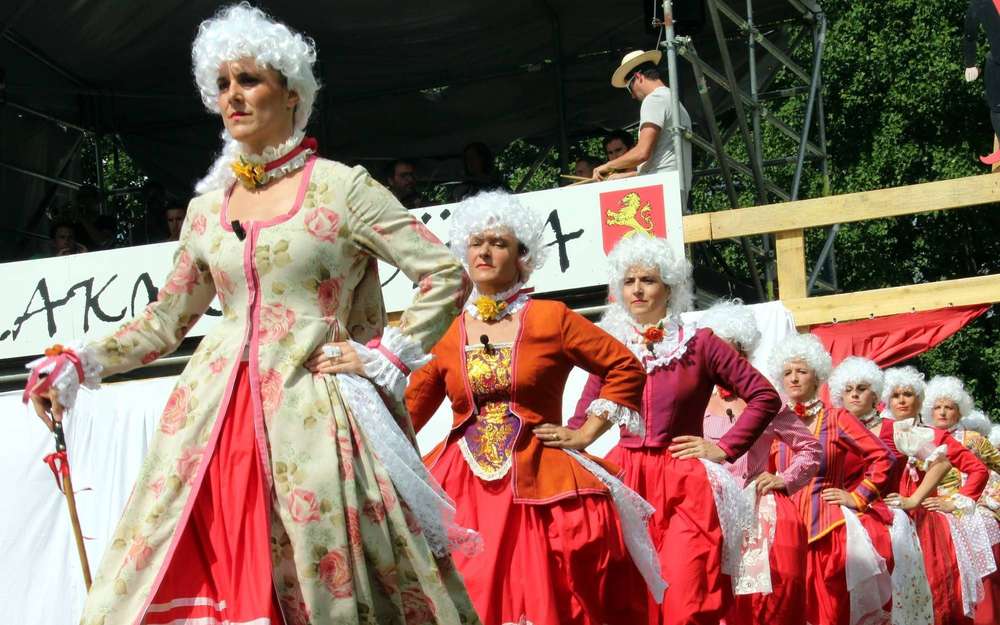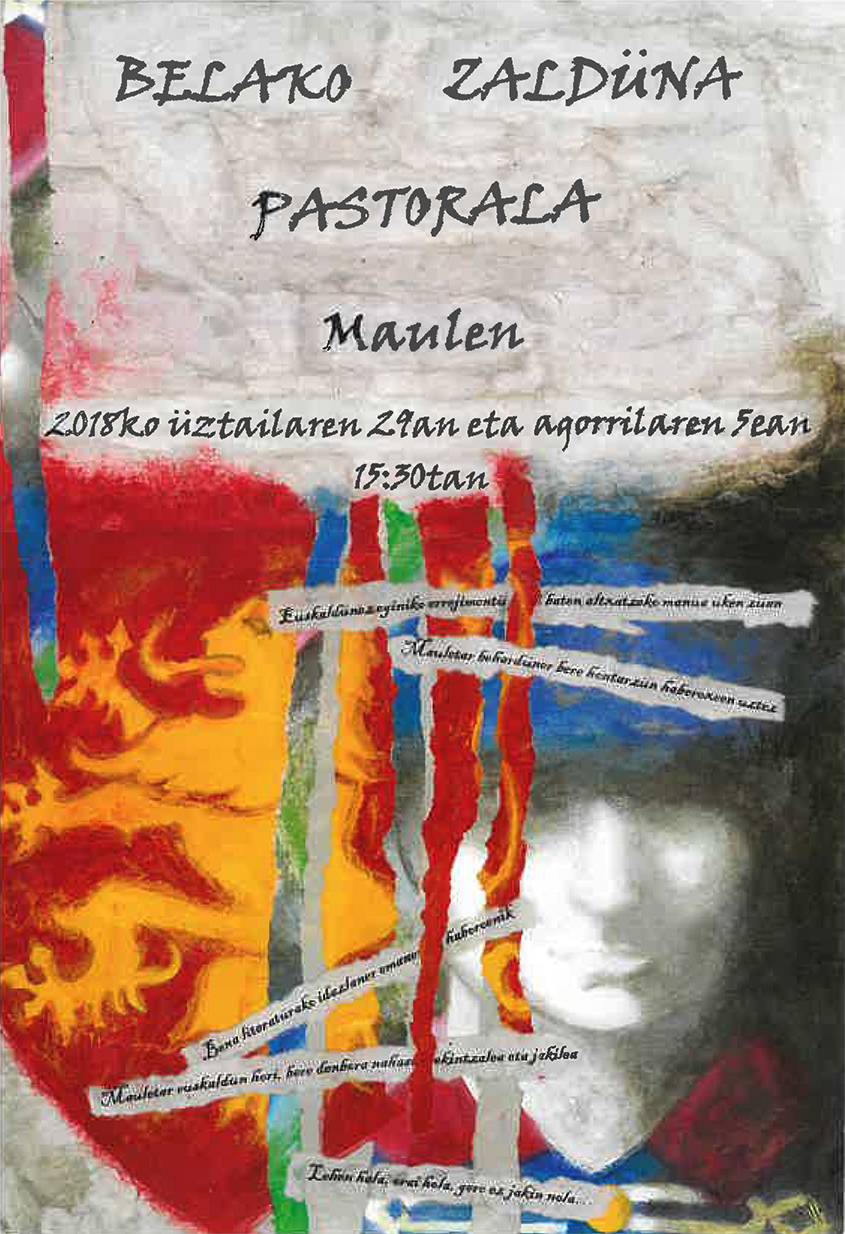Basque ethnography at a glance

The 2018 pastoral of Zuberoa: popular staging of the story of the chevalier de Béla. Photograph by Gilles Choury taken from larepubliquedespyrenees.fr.
The 2018 pastoral play will be performed in Mauléon-Licharre on 29 July and 5 August and tells the story of one of its most illustrious sons: Jean-Philippe de Béla, born on 8 July 1709 and known as le chevalier de Béla.
At the age of eighteen he departed from Mauléon to enrol Louis XV of France’s army and in 1731 was sent to Sweden as an undercover agent. He was appointed lieutenant colonel, later a member of the order of St Louis, and had a somewhat troubled military career, taking an active part in the Polish and Austrian succession wars.
During the mentioned campaigns he became close to Stanisław Leszczyński, king of Poland, who was deposed and later granted the duchy of Lorraine, which brought him together with the young countess de Chauloy, whom he lived with for the rest of his days without ever marrying. They had a daughter called Jeanne Prudence and lived in a small chateau in the Loire Valley.
In 1745 he was assigned the formation of a regiment made up exclusively by Basques, titled Cantabrian Volunteers, subsequently Royal Cantabrian Regiment, who fought several battles, namely in Flanders. But, having been slandered, he challenged his accuser to a duel, whereupon the chevalier de Béla was sentenced to six months of imprisonment and the regiment disbanded in 1749. He consequently left the army and returned to his homeland, where he acquired the house of the noble Domecq family in Libarrenx, and a second home in Sainte-Engrâce. He would be appointed trustee of the community of the said parish, which in April 1767 became part of the Estates of Zuberoa, and of the Béarn in January 1778.

Promotional poster of the play.
Thus, the Chevalier de Béla participated actively in the life of his community in Zuberoa, particularly concerned about the over-exploitation of the forests in Larrau and fighting for the interests of the people of Sainte-Engrâce against Bearnese usurpation, among other pursues. However, it was his contribution as a literary writer that was to mark his career and he devoted most of his time to, his military memoirs, the history of the Royal Cantabrian Regiment and various administrative writings being some of his most important works.
Nonetheless, Histoire des Basques [History of the Basques], an unpublished manuscript in three volumes, which includes a French-Basque dictionary, remains his major work. It is preserved in the French National Library.
At the end of his life and under the Reign of Terror, the chevalier de Béla was stripped of more than half of his fortune, imprisoned again in 1794, and later freed. He died in Pau on 15 March 1796 at 87 years of age, leaving most of his fortune to needy citizens of Mauléon-Licharre.
As a lover of all things Basque, native to Mauléon, and actor and witness to a turbulent period, the saying Lehen hala, orai hola, gero ez jakin nola ‘Once like that, now like this, next who knows how’ is attributed to him. His is also the following quote: “On divise les Basques en sept provinces ou pays” (The Basques are divided into seven provinces or territories). Might those meaningful words be the forerunners of the motto Zazpiak bat ‘All seven are one’?
Jean Bordaxar – Author of the pastoral “The chevalier de Béla”
Translated by Jaione Bilbao – Ethnography Department – Labayru Fundazioa
Original text in Souletin Basque.
PS: We remind our readers this blog will be taking a rest from its weekly post during the month of August and will be back for the first Friday of September.

